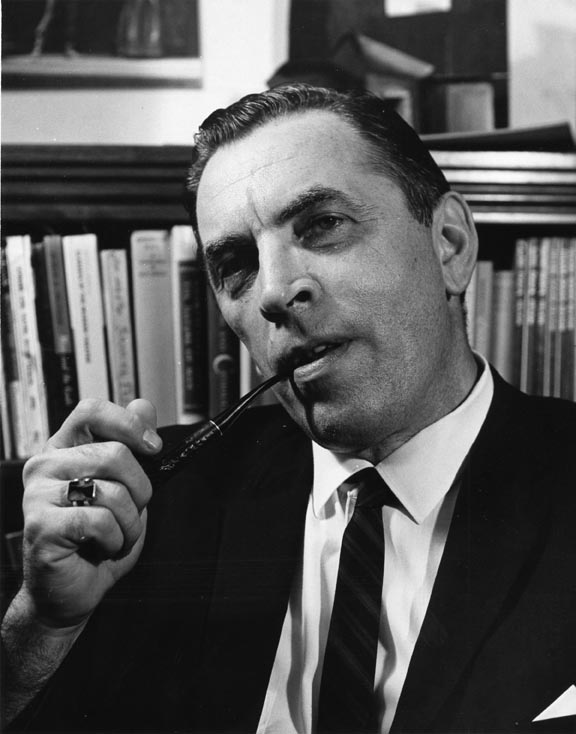Gene Kildahl

Erling (Gene) E. Kildahl was born on March 20, 1917 in Minneapolis, Minnesota. He attended Jamestown College in North Dakota and went on to the Pasadena Playhouse where he studied under famed director Gilmor Brown. After graduating with his Master of Fine Arts he was hired by Brown to teach acting at the Playhouse. Gene’s Purdue career began in 1947. At Purdue he directed 34 productions starting with Androcles and the Lion and The Merry Wives of Windsor in 1948. Highlights of his career include directing Medea in 1955, Othello in 1958, and Hamlet in 1959. He played opposite Frances Farmer in The Visit in 1965 and acted the lead role in King Learin 1970, with both productions directed by Joe Stockdale. He headed the Theatre Section of the Creative Arts Department in the last years of the 1960s and transferred to the Speech Department where he taught Oral Interpretation for the rest of his academic career, retiring in 1983.
In the spring of 1964 he was honored by being nominated and selected as an outstanding director of Shakespearian productions to be on the national committee to celebrate the quadricentennial of the playwright’s birth. This award was presented at the White House by President Lyndon Johnson accompanied by Senator Fulbright and famed American Shakespearian actor Maurice Evans. This was followed by a reception given by Lady Byrd Johnson. Those honored were then taken to New York City to see John Gielgud’s production of Hamlet, starring Richard Burton.
In addition to his passion for acting and all things theatrical, Gene had a keen mind which was reflected in a wide range of interests as diverse as world history, literature, science, politics, and sports. He edited Westward We Came: A Norwegian Immigrant’s Story, 1866-1898, based on his father’s work and published by Purdue University Press.
For 36 years Gene was instrumental in training students in voice, oral interpretation and classical text. He stressed the importance of good speech which emphasized variety of rate, force, pitch, a pleasing quality of voice, good articulation and the theatricality of “spirit and fire.” In the words of his closest friend, Joe Stockdale, “Erling E. Kildahl was the real thing: a straight shot, with no chaser...”.